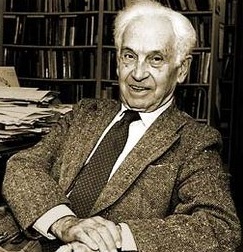Reading on: Reactions to the new naturalism
Mayr, Ernst “Darwin’s Influence on Modern Thought” in Scientific American, July, 2000 [abstract– 280 words]— an ideological revolutionDarwin’s ideas have changed our conception of the world and our place in it. More than any other scientific discovery, it modified the average person’s worldview.
Four of his contributions to evolutionary biology are especially important: 1. species change 2. common descent of all living things on earth from a single unique beginning 3. evolution is gradual, with no major breaks or discontinuities 4. the mechanism of evolution is natural selection.
Natural selection is an extraordinary philosophical advance, unknown throughout the more than 2,000-year history of philosophy. It makes unnecessary the invocation of “final causes”—that is, any teleological forces leading to a particular end. Nothing is predetermined.
• Darwinism rejects all supernatural phenomena and causations. The adaptedness and diversity of the world is explained solely materialistically.
• Darwin’s theory makes any idea that there is a force leading life to ever greater perfection unnecessary.
• Darwin does away with determinism. Randomness and chance are part of the process of natural selection.
• Darwin developed a new view of humanity. Humans are the only creatures to have created a rich culture. And by these means, have attained an unprecedented dominance over the entire globe.
• Darwin provided a scientific foundation for ethics. The social group is also a unit of evolution and harmonious cooperation by the members of the group (altruism) aids survival.
In summary, Darwin’s greatest contribution is that he developed a set of new principles that influence the thinking of every educated person: the living world, through evolution, can be explained without recourse to supernaturalism; teleology is fallacious; determinism is repudiated and all that places our fate squarely in our own evolved hands.
This article is based on the September 23, 1999, lecture that Mayr delivered in Stockholm on receiving the Crafoord Prize from the Royal Swedish Academy of Science.


